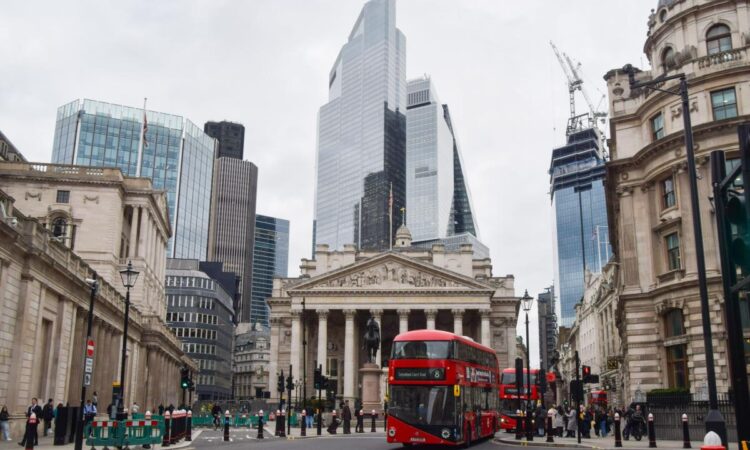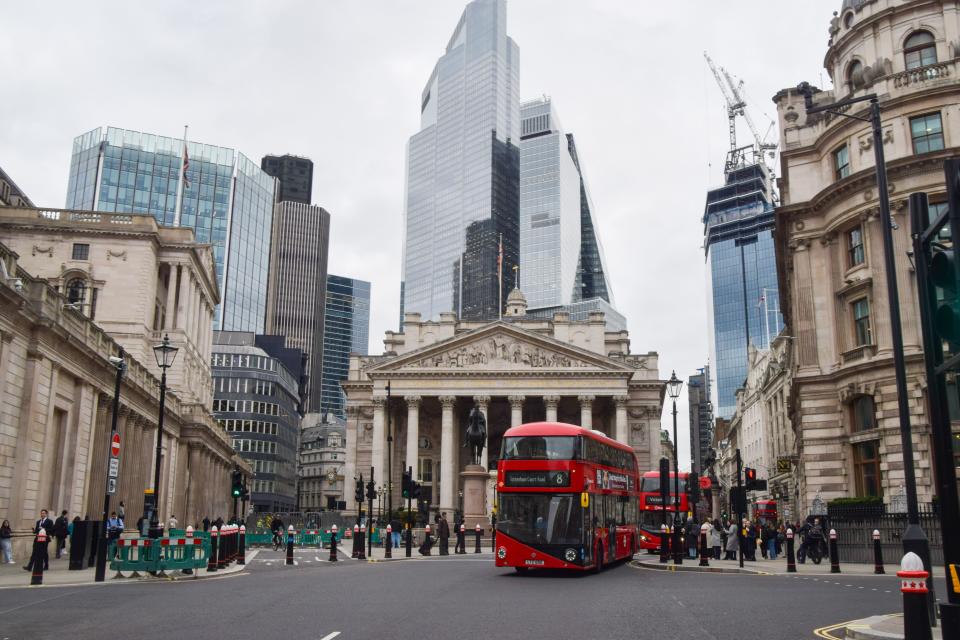

European stock markets were in the red on Thursday as the Bank of England (BoE) held interest rates at 5.25% in a three-way vote split.
In London, the FTSE 100 (^FTSE) was trading 0.2% lower by the end of the session, while the CAC (^FCHI) lost 1.1% in Paris, and the Frankfurt DAX (^GDAXI) was 0.4% down.
The pound (GBPUSD=X) ticked up slightly on the back of the news before falling. At the time of writing it is 0.2% down against the dollar.
In its first meeting of the year, members of Threadneedle Street’s the monetary policy committee (MPC) voted to leave the key lending rate unchanged.
The overall move was widely expected by economists, and means that rates have now been held at this level since last August.
On Thursday, the bank said it would keep interest rates “under review”, adding that inflation will hit its target of 2% in the second quarter of this year but then increase again in the second half of this year.
Policymakers also increased their forecast for growth in the UK economy in the coming years.
Gross domestic product (GDP) is expected to grow by 0.25% this year, followed by 0.75% growth in 2025 and then 1% in 2026.
It comes as the US Federal Reserve left interest rates on hold last night, while chair Jerome Powell looked to cool expectations that it would begin cutting rates as soon as March.
He insisted a March cut was not the Fed’s “base case”, seen as an indication that the central bank could delay easing monetary policy until May.
Read more: Big central banks are pivoting towards rate cuts
The S&P 500 (^GSPC) rose 0.4% by the time of the European close, after falling 1.6% to 4,845.65 in its worst day since September last night.
Tech stocks recovered somewhat, with the Nasdaq Composite index (^IXIC) up 0.5%, while the Dow Jones Industrial Average, (^DJI) was 0.3% higher.
It also came as the number of Americans filing claims for unemployment support rose to a two-month high.
The amount of fresh ‘initial claims’ rose by 9,000 last week, to 224,000. Continuing claims, which tracks the number of people receiving unemployment benefits, rose to 1.9 million.
Meanwhile, US factory activity in the US remained in contraction last month, but performed better than expected.
America’s manufacturing sector suffered from rapidly rising interest rates in the past couple of years to curb runaway inflation.
The Institute for Supply Management (ISM) said its manufacturing index stood at 49.1%, up from 47.1% in December and better than analysts forecast.
Watch: How does inflation affect interest rates?
Download the Yahoo Finance app, available for Apple and Android.






